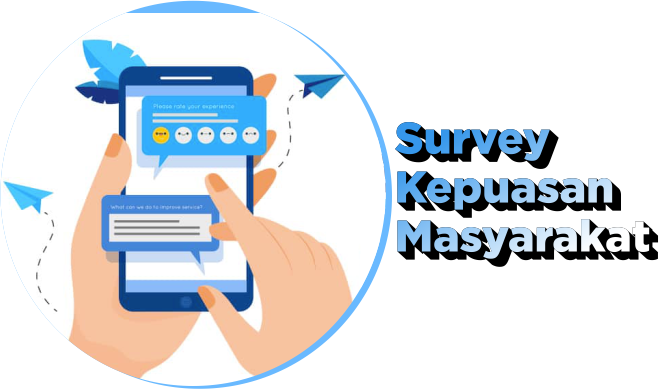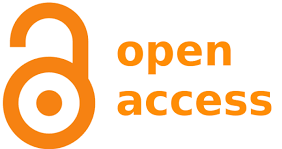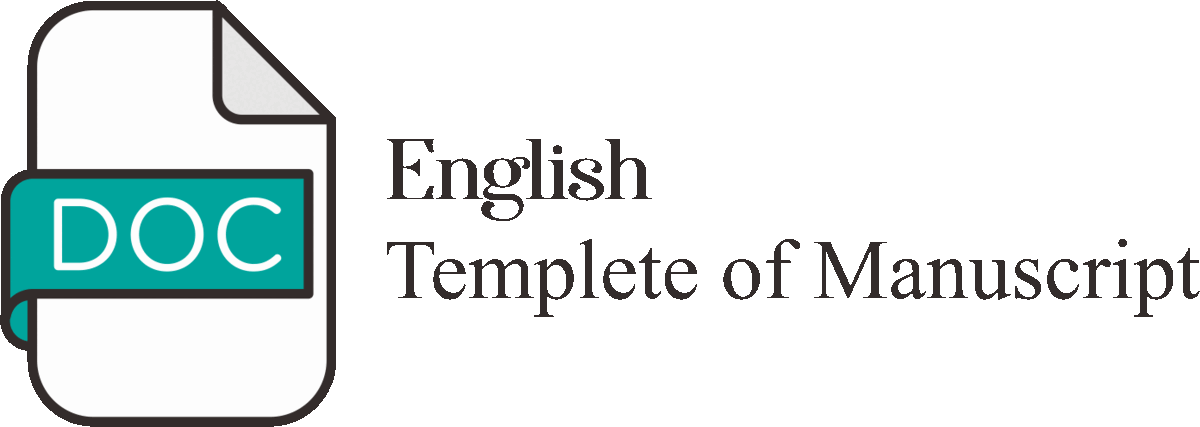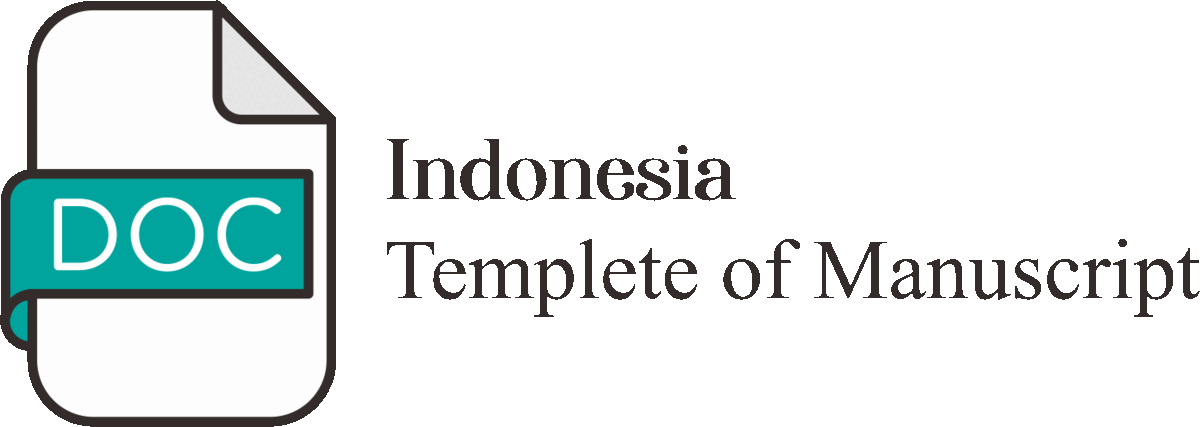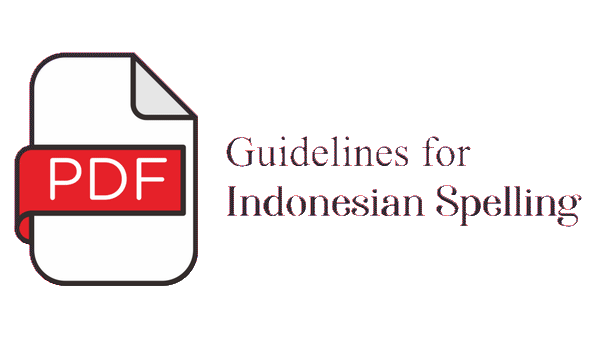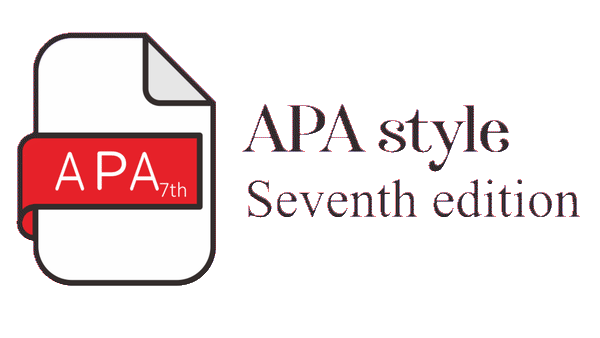PERILAKU MENGONSUMSI IKAN DAN PENGARUHNYA TERHADAP KEMAMPUAN KOGNITIF
Abstract
Penelitian ini bertujuan untuk mengidentifikasi hubungan perilaku mengkonsumsi ikan terhadap kemampuan kognitif anak berusia 7–14 tahun dengan data yang diperoleh dari Survei Aspek Kehidupan Rumah Tangga Indonesia (SAKERTI) tahun 2014. Hasil uji regresi logistik biner menunjukkan bahwa perilaku mengkonsumsi ikan mempunyai hubungan yang signifikan terhadap kemampuan kognitif. Begitu juga dengan variabel kontrolnya, yaitu stunting, pendidikan prasekolah, status bersekolah, pendidikan Ibu, dan daerah tempat tinggal, sedangkan pengeluaran per kapita tidak memiliki hubungan terhadap kemampuan kognitif. Hasil serupa ditunjukkan ketika dilakukan uji regresi logistik berdasar subgroup kelompok usia 7–12 tahun. Namun hasil berbeda terjadi pada kelompok usia 13–14 tahun, dimana variabel stunting, dan daerah tempat tinggal tidak mempunyai hubungan terhadap kemampuan kognitif. Hasil dari penelitian ini menunjukkan bahwa semakin sering anak mengkonsumsi ikan, maka peluang untuk mempunyai kemampuan kognitif tinggi semakin meningkat.
Title: Fish Consumption Behavior and Its Effect on Cognitive Ability
This study aims to identify the relationship of fish consumption behavior and its effect on cognitive abilities of children aged 7-14 years with data obtained from the 2014 Indonesian Family Life Survey (IFLS). The results of binary logistic regression tests indicated that fish consumption behavior has a significant relationship to cognitive ability, similarly with the control variables, namely stunting, early childhood education, schooling status, mother’s education, and residential area, while per capita expenditure has no relationship to cognitive abilities. Similar results were shown when a logistic regression test was based on a subgroup of 7–12 years age group. However, different results occur in the age group 13-14 years, stunting and residential area does not have a relationship to cognitive abilities. The results of this study indicate that the more often children consume fish, the more opportunities to have high cognitive abilities.
Keywords
Full Text:
PDFReferences
Åberg, M. A. I., Åberg, N., Brisman, J., Sundberg, R., Winkvist, A., & Torén, K. (2009). Fish Intake of Swedish Male Adolescents Is A Predictor of Cognitive Performance. Acta Paediatrica, International Journal of Paediatrics, 98(3), 555–560.
Argina, A. W., Mitra, D., Ijabah, N., & Setiawan, R. (2017). Indonesia PISA Result : What Factors and What Should Be Fixed? The 1st Education and Language International Conference Proceedings Center for International Developmentof Unissula, 69–79.
Arthatiani, F. Y., Kusnadi, N., & Harianto. (2018). Analisis Pola Konsumsi dan Model Permintaan Ikan Menurut Karakteristik Rumah Tangga di Indonesia. Jurnal Sosial Ekonomi Kelautan
Dan Perikanan, 13(1), 73–86.
Asadullah, M. N., & Chaudhury, N. (2015).
The Dissonance Between Schooling and Learning: Evidence from Rural Bangladesh. Comparative Education Review, 59(3),
–472.
Badan Pusat Statistik. (2018). Konsumsi Kalori dan Protein Penduduk Indonesia dan Provinsi, Maret 2018. Badan Pusat Statistik.
Carwile, J. L., Butler, L. J., Janulewicz, P. A., Winter, M. R., & Aschengrau, A. (2016). Childhood
Fish Consumption and Learning and
Behavioral Disorders. International Journal of Environmental Research and Public Health, 13(11), 1–15.
Chan, C. Y., Tran, N., Dao, D. C., Sulser, T. B.,
Philips, M. J., Batka, M., Wiebe, K., & Preston, N. (2017). Fish to 2050 in the ASEAN Region (No. 01).
Chen, Y.-H. (2012). Cognitive Diagnosis of
Mathematics Performance Between Rural and Urban Students in Taiwan. Assessment in Education: Principles, Policy & Practice, 19(2), 193–209.
Cunha, F., & Heckman, J. (2007). The Technology of Skill Formation. American Economic Review, 97(2), 31–47.
De Groot, R. H. M., Ouwehand, C., & Jolles, J. (2012). Eating the Right Amount of Fish: Inverted U-Shape Association Between Fish Consumption and Cognitive Performance and Academic Achievement in Dutch Adolescents. Prostaglandins, Leukotrienes and Essential Fatty Acids, 86(3), 113–117.
Demmelmair, H., Øyen, J., Pickert, T., Rauh-Pfeiffer,
A., Stormark, K. M., Graff, I. E., Lie, Ø., Kjellevold, M., & Koletzko, B. (2018). The Effect of Atlantic Salmon Consumption on
the Cognitive Performance of Preschool
Children – A Randomized Controlled Trial. Clinical Nutrition.
Dodonov, Y. S., & Dodonova, Y. A. (2011). Basic Processes of Cognitive Development: Missing Component in Piaget’s Theory. Procedia - Social and Behavioral Sciences, 30, 1345–1349.
Feldman, D. H. (2005). Piaget’s Stages : The Unfinished Symphony of Cognitive Development.
New Ideas in Psychology, 22(2004), 175–231.https://doi.org/10.1016/j.newideapsych.2004.11.005
Felicia, N. (2016). Factors Associated With Cognitive Development of Primary School Children in Eastern Indonesia. University at Albany, State University of New York.
Fitry, F. H. (2011). Pengaruh ASI Ekslusif Terhadap Kemampuan Kognitif Anak Usia 7-14 Tahun (Analisis Data Panel IFLS1 (1993)-IFLS4 (2007)). Universitas Indonesia.
Gujarati, D. N., & Porter, D. C. (2009). Basic Econometrics. In Basic Econometrics (Fifth Edit).
McGraw-Hill.
Gunawan, M., Kuntjara, A. P., Sutanto, R. P., & Timur, J. (2017). Perancangan Board Game Gerakan Memasyarakatkan Makan Ikan (Gemarikan) untuk Anak Usia 6–10 Tahun. Jurnal DKV Adiwarna, 1, 1–10.
Handeland, K., Øyen, J., Skotheim, S., Graff, I. E., Baste, V., Kjellevold, M., Frøyland, L., Lie, Ø., Dahl, L., & Stormark, K. M. (2017). Fatty fish intake and attention performance in 14-15 year old adolescents: FINS-TEENS - A randomized controlled trial. Nutrition Journal, 16(1), 1–11.
Hanushek, E. A., & Woessmann, L. (2008). The Role of Cognitive Skills in Economic Development. Journal of Economic Literature, 46(3), 607–668.
Ibda, F. (2015). Perkembangan Kognitif: Teori Jean Piaget. Jurnal Intelektualita, 3(1), 27–38.
Jang, C. L., & Chang, C. P. (2014). National Income and Fishery Consumption: A Global
Investigation. Economic Research-Ekonomska Istrazivanja, 27 (1), 15–33. https://doi.org/10.1080/1331677X.2014.947104
Kang, Y., Aguayo, V. M., Campbell, R. K., & West,
K. P. (2018). Association Between Stunting
and Early Childhood Development Among Children Aged 36–59 Months in South
Asia. Maternal and Child Nutrition, 14 (August), 1–11. https://doi.org/10.1111/mcn.12684
Kim, J. L., Winkvist, A., Åberg, M. A. I., Åberg, N., Sundberg, R., Torén, K., & Brisman, J. (2010). Fish Consumption and School Grades in Swedish Adolescents: A Study of the Large General Population. Acta Paediatrica, International Journal of Paediatrics, 99(1), 72–77.
Maika, A., Mittinty, M. N., Brinkman, S., & Lynch, J. (2015). Effect on Child Cognitive Function of Increasing Household Expenditure in Indonesia: Application of A Marginal Structural Model and Simulation of A Cash Transfer Programme. International Journal of Epidemiology, 44(1), 218–228.
Morris, M. C., Evans, D. A., Tangney, C. C., Bienias, J. L., & Wilson, R. S. (2005). Fish Consumption
and Cognitive Decline With Age in a Large Community Study. Archives of Neurology, 62, 1849–1853. https://doi.org/10.1001/archneur.62.12.noc50161
Onifade, O. M., Otegbayo, J. A., Akinyemi, J. O., Oyedele, T. A., & Akinlade, A. R. (2016). Nutritional
Status As A Determinant of Cognitive
Development Among Preschool Children in South-Western Nigeria.
British Food Journal, 118(7), 1568–1578. https://doi.org/10.1108/BFJ-11-2015-0445.
Pangeni, K. P. (2014). Factors Determining Educational Quality: Student Mathematics Achievement in Nepal. International Journal of Educational Development, 34, 30–41. https://doi.org/10.1016/j.ijedudev.2013.03.001.
Puspitasari, F. D., Sudargo, T., & Gamayanti, L. (2011). Hubungan Antara Status Gizi dan Faktor Sosiodemografi dengan Kemampuan Kognitif Anak Sekolah Dasar di Daerah Endemis GAKI. Jurnal Gizi Indonesia, 34(1), 52–60. https://ejournal.persagi.org/index.php/Gizi_Indon/article/download/101/98.
Ramdhani, M. A. (2014). Lingkungan Pendidikan dalam Implementasi Pendidikan Karakter. Jurnal Pendidikan Universitas Garut, 8(1), 28–37.
Rao, N., Richards, B., Sun, J., Weber, A., & Sincovich, A. (2019). Early Childhood Education and Child Development in Four Countries in East Asia and The Pacific. Early Childhood Research Quarterly, 47, 169–181. https://doi.org/10.1016/j.ecresq.2018.08.011.
Ree, J. de, Muralidharan, K., Pradhan, M., & Rogers, H. (2018). Double For Nothing? Experimental Evidence on An Unconditional Teacher Salary Increase in Indonesia. The Quartely Journal of
Economics, 133(2), 993–1039. https://doi.org/:10.1093/qje/qjx040.
Rindermann, H. (2012). Intellectual Classes, Technological Progress and Economic Development : The Rise of Cognitive Capitalism. Personality and Individual Differences, 53(2), 108–113. https://doi.org/10.1016/j.paid.2011.07.001.
Rosser, A. (2018). Beyond Access: Making Indonesia’s Education System Work. In Lowy Institute. http://www.ncbi.nlm.nih.gov/pubmed/1815945.
Saçkes, M. (2013). Children’s Competencies in Process Skills in Kindergarten and Their Impact on Academic Achievement in Third Grade. Early Education and Development, 24(5), 704–720. https://doi.org/10.1080/10409289.2012.715571.
Sayin, C., Emre, Y., & Tas, Y. (2014). Household Fish Consumption Tendency in Antaya Province. Journal of Academic Documents for Fisheries and Aquaculture, 2, 79–84.
Schmiedel, V., Vogt, H., & Walach, H. (2018). Are Pupils’ ‘Programme for International Student Assessment (PISA)’ Scores Associated With A Nation’s Fish Consumption? Scandinavian Journal of Public Health, 46(7), 675–679. https://doi.org/10.1177/1403494817717834.
Schneider, W., Niklas, F., & Schmiedeler, S. (2014). Intellectual development from early childhood to early adulthood: The impact of early IQ differences on stability and change over time. Learning and Individual Differences, 32, 156–162. https://doi.org/10.1016/j.lindif.2014.02.001
Somasundram, P. (2018). A Cognitive Model of Year Five Pupils’ Algebraic Thinking. University of Malaya.
Suryadarma, D., Suryahadi, A., Sumarto, S., & Rogers, F. H. (2006). Improving Student Performance in Public Primary Schools in Developing Countries: Evidence from Indonesia. Education Economics, 14(4), 401–429. https://doi.org/10.1080/09645290600854110
Thorsdottir, F., Sveinsdottir, K., Jonsson, F. H., Einarsdottir, G., Thorsdottir, I., & Martinsdottir, E. (2012). A Model of Fish Consumption Among Young Consumers. Journal of Consumer Marketing, 29(1), 4–12.
https://doi.org/10.1108/07363761211193000
Todaro, M. P., & Smith, S. C. (2012). Economic Development 11th Edition (11th ed.). Pearson Education, Inc. https://doi.org/10.1177/089124240001400105
Tran, N., Rodriguez, U. P., Chan, C. Y., Phillips, M. J., Mohan, C. V., Henriksson, P. J. G., Koeshendrajana, S., Suri, S., & Hall, S. (2017). Indonesian Aquaculture Futures: An Analysis of Fish Supply and Demand in Indonesia to 2030 and Role of Aquaculture Using The AsiaFish Model. Marine Policy, 79(February), 25–32. https://doi.org/10.1016/j.marpol.2017.02.002
Trihono, Atmarita, Tjandrarini, D. H., Irawati, A., Utami, N. H., Tejayanti, T., & Nurlinawati, I. (2015). Pendek (Stunting) di Indonesia, Masalah dan Solusinya (M. Sudomo (ed.)). Lembaga Penerbit Balitbangkes.
Warsito, O., Khomsan, A., Hernawati, N., & Anwar, F. (2012). Relationship Between Nutritional Status, Psychosocial Stimulation, Development in Preschool Children in Indonesia. Nutrition Research and Practice, 6(5), 451–457.
Waysima, Sumarwan, U., Khomsan, A., & Zakaria, F. R. (2010). Sikap Afektif Ibu Terhadap Ikan Laut Nyata Meningkatkan Apresiasi Anak Mengkonsumsi Ikan Laut. Journal of Nutrition and Food, 5(23), 197–204.
Woldehanna, T., Behrman, J. R., & Araya, M. W. (2017). The Effect of Early Childhood Stunting on Children’s Cognitive Achievements: Evidence From Young Lives Ethiopia. Ethiopian Journal of Health Development, 31(2), 75–84.
https://doi.org/10.1016/j.artmed.2015.09.007.Information
DOI: http://dx.doi.org/10.15578/jsekp.v15i2.7930
Indexed by:
-------------------------------------------------------------------------------------
Published by
Research Center for Marine and Fisheries Socio-Economic
in collaboration with
Indonesian Marine and Fisheries Socio-Economics Research Network

This work is licensed under a Creative Commons Attribution-NonCommercial-ShareAlike 4.0 International License.

